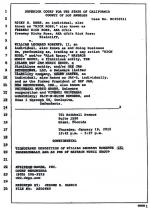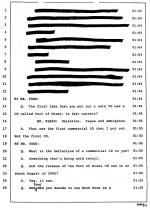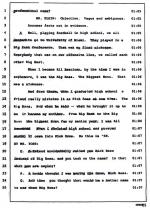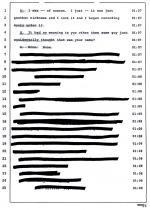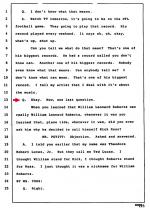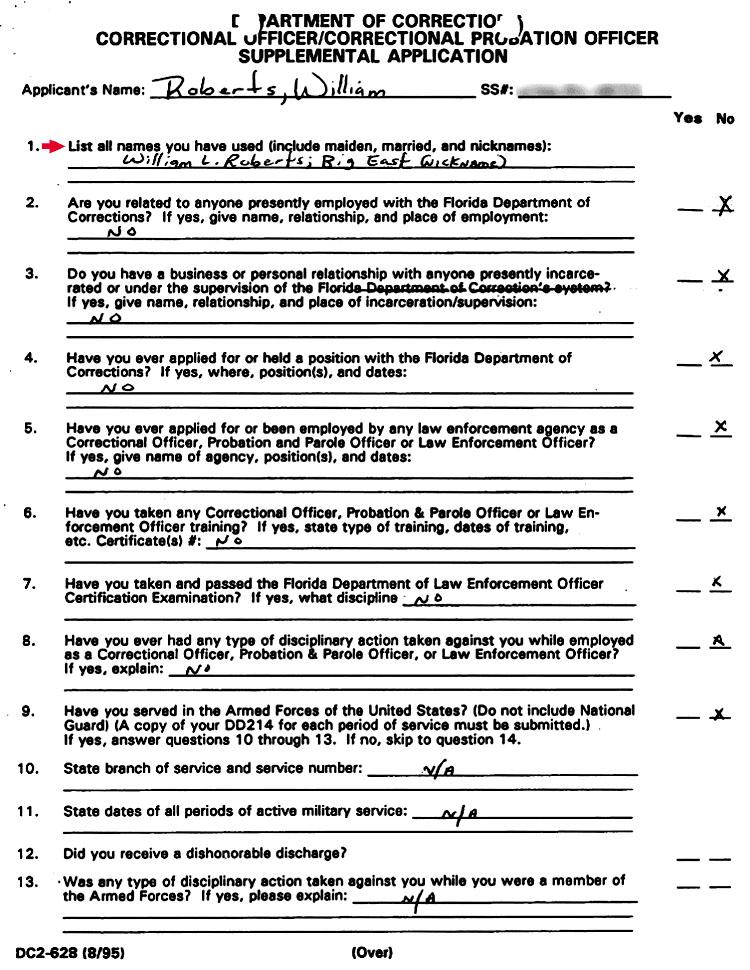Rapper's Sworn Testimony Worthy Of Comedy Award
Under oath, Rick Ross denied druglord name hijack

View Document
DECEMBER 11--During a deposition earlier this year, Rick Ross, the studio gangster now under siege from actual hoodlums, testified 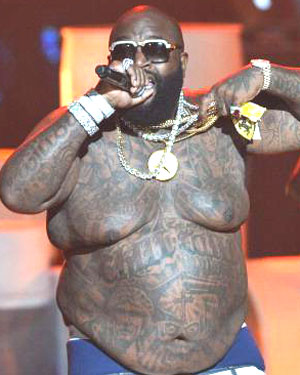 about the supposed genesis of his rap handle, which happens to be the real name of a notorious Los Angeles narcotics trafficker.
about the supposed genesis of his rap handle, which happens to be the real name of a notorious Los Angeles narcotics trafficker.
The performer’s sworn testimony was as entertaining as any cut on Ross’s CDs or assorted mixtapes.
Ross (real name: William Leonard Roberts) was unsuccessfully sued by former drug kingpin “Freeway” Ricky Ross, who claimed that the rap star swiped his name and identity. The rapper, 36, has claimed to have once overseen the distribution of kilos of cocaine from his perch atop a Miami gang.
In fact, Ross is a former jail guard with an active imagination, a wealthy entertainer who has successfully synthesized the stories of actual gangsters--Italian, black, Colombian--into his raps, which repeatedly declare him a “boss” (or “Bawse” in Ross-speak).
When questioned about how he decided to use “Rick Ross” as a professional name, the rapper unspooled a tale beginning when he was a football player at Miami Carol City Senior High School in the mid-1990s.
Ross testified that he and his fellow offensive linemen called each other “Big East,” since they all wanted to attend the University of Miami, then a member of the Big East Conference. “That was my first nickname,” he said during the January 12 deposition.
Ross then explained, “When I became All American, by the time I was in sophomore, I was the Big Boss. The Biggest Boss. That was a nickname.”
At some point following his 1994 graduation, Ross testified, “a friend” mistook his nickname to be “Rick Ross,” not “Big Boss.” The deposition does not further identify this purported friend or the level of his hearing deficiencies.
“And when he said, when he brought it up to me, it became my moniker. From Big East to the Big Boss, the Biggest Boss for my senior 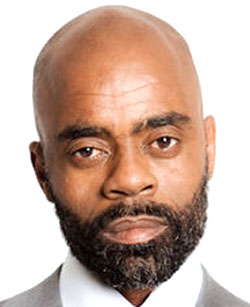 year, I was All American. When I finished high school and pursued music, it came into Rick Ross. So this is ’96.”
year, I was All American. When I finished high school and pursued music, it came into Rick Ross. So this is ’96.”
Presented with this explanation, Jan Yoss, one of the lawyers for “Freeway" Ricky Ross (seen at left), asked Ross, “A friend accidentally called you Rick Ross instead of Big Boss, and you took on the name? Is that what you are saying?”
“A buddy thought I was saying the name Rick Ross,” replied the rapper.
Yoss then asked, “And then you thought that would be a better name to use than Big Boss?”
The performer answered, “It was just another nickname and I took it and I began recording music under it.” So, Yoss wondered, “It had no meaning to you other than some guy just accidentally thought that was your name?” Ross replied, “None. None.”
An even more implausible explanation for the rapper’s stage name came from Ted Lucas, founder of Slip-N-Slide Records, Ross’s first recording label.
During a January 20 deposition, Lucas was asked if he had ever quizzed the performer about why he “decided to call himself Rick Ross” instead of his birth name (William Leonard Roberts).
“I thought William stand for Rick, I thought Roberts stand for Ross,” Lucas testified. “I just thought it was a nickname for William Roberts.”
“Right,” Yoss said.
Ross worked as a Florida corrections officer for 18 months, resigning his position in June 1997 via a polite letter to his bosses at the South Florida Reception Center. While his Department of Corrections personnel file makes no mention of his musical aspirations, one application form that Ross completed required him to list all names and nicknames he had used.
“William L. Roberts; Big East (nickname),” he wrote, apparently forgetting the handle he did not steal from a notorious druglord. (6 pages)

